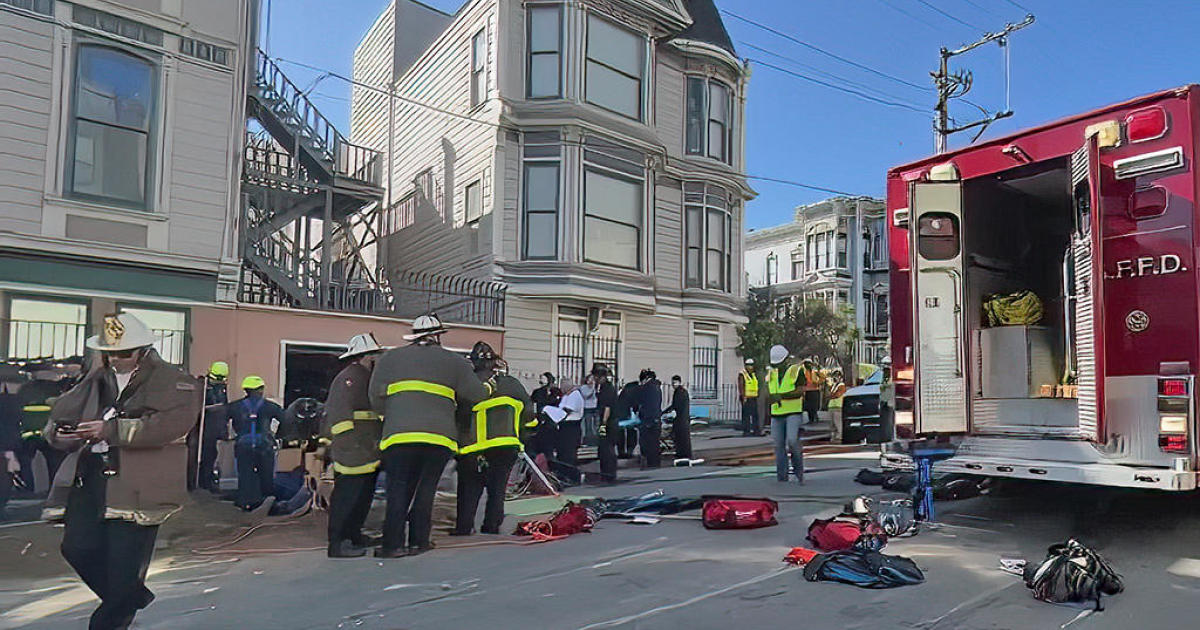United Methodist Church Considers Hewlett Packard Divestment
PALO ALTO (CBS SF) – United Methodist Church leaders are considering divestment from Silicon Valley software company Hewlett-Packard in response to proposed church legislation stating that the company profits from Israeli settlements.
Almost 900 delegates of the United Methodist Church (UMC) have flown in from around the world for the 2016 General Conference in Portland, Oregon and are set to debate and vote on whether investing in Palo Alto-based HP, formerly known as Hewlett-Packard Co., goes against their religious beliefs.
The divestment petition, or proposed church legislation, states that "Hewlett Packard provides data storage for settlements, manages information technology for the Israeli Navy, and provides biometric monitoring of checkpoints inside the West Bank" and that the church has been asking the company not to support Israeli settlements for years.
The UMC already opposes Israeli military occupation of the West Bank, Gaza and East Jerusalem, as well "as the continued building of illegal Jewish settlements," according to the United Methodist News Service.
The General Conference meets every four years to debate and consider revising church law as well as the adoption of new resolutions on moral, social, public policy and economic issues. The church is the largest mainline Protestant church in the U.S. with an estimated 80 million adherents worldwide.
Caterpillar and Motorola Solutions are also up for possible divestment by the church.
If the church decides to divest from companies deemed to be profiting from Israeli settlements, they will be joining other churches, including the United Church of Christ, the Presbyterian Church (USA) and the Quaker's Friends Fiduciary Corporation that have already done so.
The United Methodist Board of Church and Society and United Methodist Kairos Response, an advocacy group, submitted the divestment petitions for 2016.
Similar divestment petitions in the UMC failed in both 2008 and 2012.
However, in January, the UMC announced that the five largest Israeli banks -- Bank Hapoalim, Bank Leumi, First International Bank of Israel, Israel Discount Bank and Bank Mizrahi-Tefahot – would be off limits for investment by the church's pension agency.
Rev. Michael Yoshi, co-chair of Kairos Response, and a pastor at Buena Vista United Methodist Church in Alameda, explained that there is reason to believe the tide may be shifting and that the church leaders could approve divestment this year.
"We've seen more and more United Methodists join us in this movement as we respond to the call of the Palestinians, whom we've developed close relationships with," Yoshi said in a statment.
But Hewlett-Packard Co., which became HP Inc. and created a sister company, Hewlett Packard Enterprise in 2015, maintains that it is strongly committed to socially responsible business practices and has been throughout its history.
A Hewlett Packard Enterprise spokesperson told CBS San Francisco via email Thursday:
"Our work in Israel is consistent with our values and standards. It is not our policy to take sides in political disputes between countries or regions. Instead, we are committed to making the benefits of technology available to all people as a means to learn, to work and to thrive."
But critics say that by doing business in Israel and Israeli settlements, they are taking sides.
On Tuesday, HP Inc. announced the creation of another company -- HP Tech Ventures -- an investment branch that will fund early-stage startups in fields such as 3-D printing, virtual reality, wearable tech and artificial intelligence.
HP Tech Ventures will operate teams in both Palo Alto and Tel Aviv, Israel.
Tom Suiter, an HP spokesman told CBS San Francisco on Friday, "We've had an operational presence in Tel Aviv with HP Labs for years and the area is widely recognized as the second largest tech innovation hub worldwide after the Silicon Valley."
This week, Democratic presidential candidate Hillary Clinton, who along with former U.S. President George W. Bush, is a member of the United Methodist Church, wrote a letter to Jewish leaders stating that she is against the campaign advocating for the boycott, divestment and sanctions (BDS) against Israel.
In her letter, Clinton reiterates her opposition to the BDS movement, stating:
"I have opposed dozens of anti-Israel resolutions at the UN, the Human Rights Council, and other international organizations… And I made sure the United States blocked Palestinian attempts at the UN to unilaterally declare statehood… I believe that B.D.S. seeks to punish Israel and dictate how the Israelis and Palestinians should resolve the core issues of their conflict. This is not the path to peace."
Other related petitions to be heard at the General Conference this year oppose divestment of church funds for political reasons, while others suggest establishing a screen that excludes investment in companies with involvement in illegal settlements.
But despite growing pressure from some delegates, the UMC's pension and health benefits board - along with Wespath, the church's investment arm - has repeatedly opposed legislative attempts at General Conferences in the past to require divestment from specific companies.
"We don't believe that divestment is an effective strategy for increasing positive change," said Barbara Boigegrain, CEO and General Secretary of the Board of Pension and Health Benefits. "Walking away from the table silences your voice."
Boigegrain oversees all fiduciary services and administrative operations of the General Board, and Wespath, which was created in 1908 and now has approximately $20 billion in assets under management.
Wespath states that it does not invest in companies earning significant revenues from the manufacture, sale or distribution of alcohol, tobacco, adult entertainment, weapons, nor the management or operation of prison facilities. Wespath states it aims to serve the need of institutional investors while honoring the values of the UMC.
Those values have already come under fierce debate as the General Conference begins and will continue next week when roughly 1,000 petitions including divestment, abortion, and LGBTQI issues, come up for potential revision or adoption.
By Hannah Albarazi - Follow her on Twitter: @hannahalbarazi.



